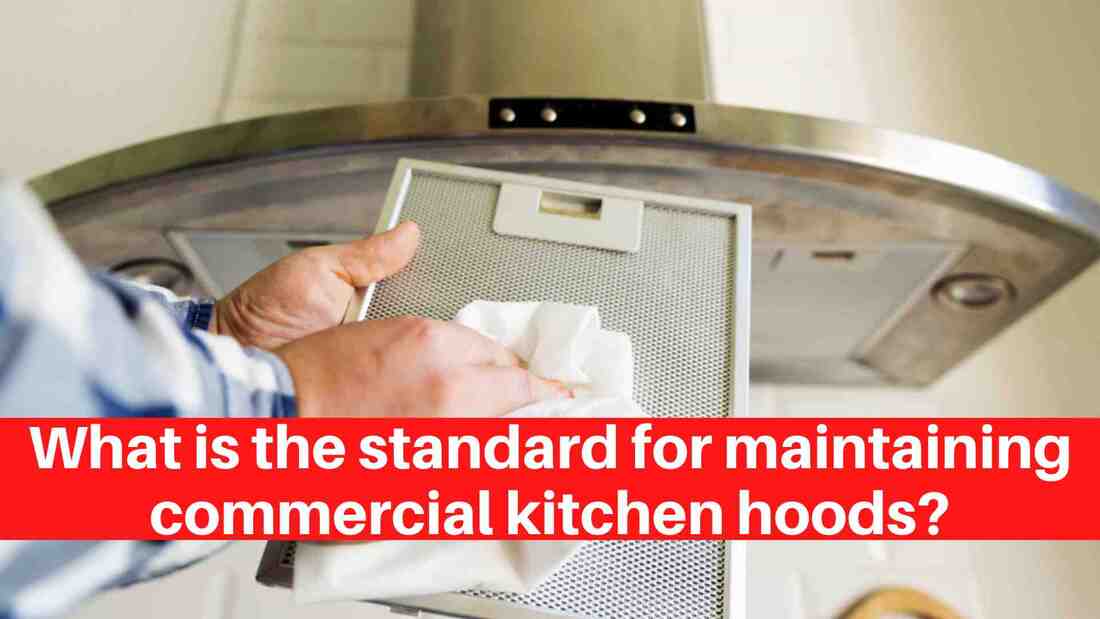|
The Standard for Commercial Kitchen Hood Maintenance
NFPA 96 is the National Fire Protection Association's Standard for Commercial Cooking Ventilation Control and Fire Protection. It is a thorough standard that addresses all aspects of commercial kitchen ventilation and fire protection, from design and installation to inspection and maintenance. General Requirements, Hoods and Ductwork, Exhaust Systems, and Make-Up Air Systems are the four major sections of the NFPA 96 standard. Each section specifies the design, installation, testing, and maintenance requirements. Commercial kitchen hoods must be cleaned and maintained on a regular basis in order to meet the National Fire Protection Association's standards (NFPA). Over time, as cooking equipment is used, vaporized grease solidifies inside the ventilation ducts. If the ducts are not cleaned on a regular basis, this creates an unavoidable fire hazard. The frequency with which the ductwork must be cleaned is determined by several factors, including the type of cooking equipment used, the amount of grease produced, and the layout of the ductwork. However, all commercial kitchens should have their hoods cleaned by a qualified professional at least once a month. More frequent cleaning may be required in some cases. Cleaning commercial kitchen hoods is a difficult job. To do it safely and effectively, special equipment and training are required. That is why it is critical to hire a qualified professional to clean your exhaust system and assist you in remaining in compliance with NFPA 96. How Does NFPA 96 Affect Your Business? A fire suppression system is required in your commercial kitchen, and that system must be regularly maintained to ensure it works properly in the event of a fire. The National Fire Protection Association's Standard for Ventilation Control and Fire Protection of Commercial Cooking Operations, NFPA 96, specifies the design, installation, and maintenance of commercial kitchen hoods and other fire suppression systems. If you own or run a commercial kitchen, you should be aware of NFPA 96 and how it may affect your operation. Ignoring this critical standard may put your company at risk in the event of a fire. Here are some important points to remember about NFPA 96: • It establishes minimum requirements for commercial kitchen hoods and other fire suppression systems design, installation, and maintenance. • It applies to all types of cooking operations, including those that use solid fuel (for example, wood-fired ovens), liquid fuel (for example, gas-fired fryers), or electricity (such as induction cooktops). • It mandates that all new commercial kitchens be designed and constructed in accordance with NFPA 96. • Existing commercial kitchens must be retrofitted to meet NFPA 96 standards if they do not already. • It mandates that all commercial kitchen hoods be inspected and cleaned on a regular basis by a qualified professional. Correctly maintaining kitchen hoods is critical for the safety of your customers, employees, and property. NFPA 96: The Standard for Maintaining Commercial Kitchen Hoods is a detailed guide that explains how to comply with all applicable regulations. By following the NFPA standards, you can ensure that your commercial kitchen hoods are properly maintained and in compliance with applicable codes, allowing your business to run safely and smoothly. Comments are closed.
|
Archives
April 2023
Categories |
- Home
- Exhaust Cleaning
-
Hood Cleaning
- Hood Cleaning Service
- Kitchen Hood Cleaning Near Me
- Restaurants Hood Cleaning
- Kitchen Hood Cleaning
- Hood Cleaner
- Commercial Kitchen Hood Cleaning
- Restaurant Hood Cleaning Near Me
- Commercial Hood Cleaning
- Services for Hood Cleaning
- Food Truck Hood Cleaning
- Toronto Hood Cleaning Services
- Toronto Restaurant Equipment Cleaning
- Toronto Fire Prevention Cleaning & Degreasing
- Toronto Commercial Restaurant Kitchen Hood & Exhaust Cleaning
- Toronto Restaurant Exhaust System Cleaning
- Toronto Hospital and Long Term Care Homes Commercial Hood & Exhaust Cleaning
- Toronto Commercial Hood Cleaning
- Contact
- Institutions
- Hood Cleaning Toronto Blog
|
HOOD CLEANING TORONTO
647-931-1260 Toronto Ontario M5N 1M9 Hours of Operation Monday to Saturday 8:00 am - 6:00 pm https://hoodcleaningtoronto.ca |


 RSS Feed
RSS Feed

